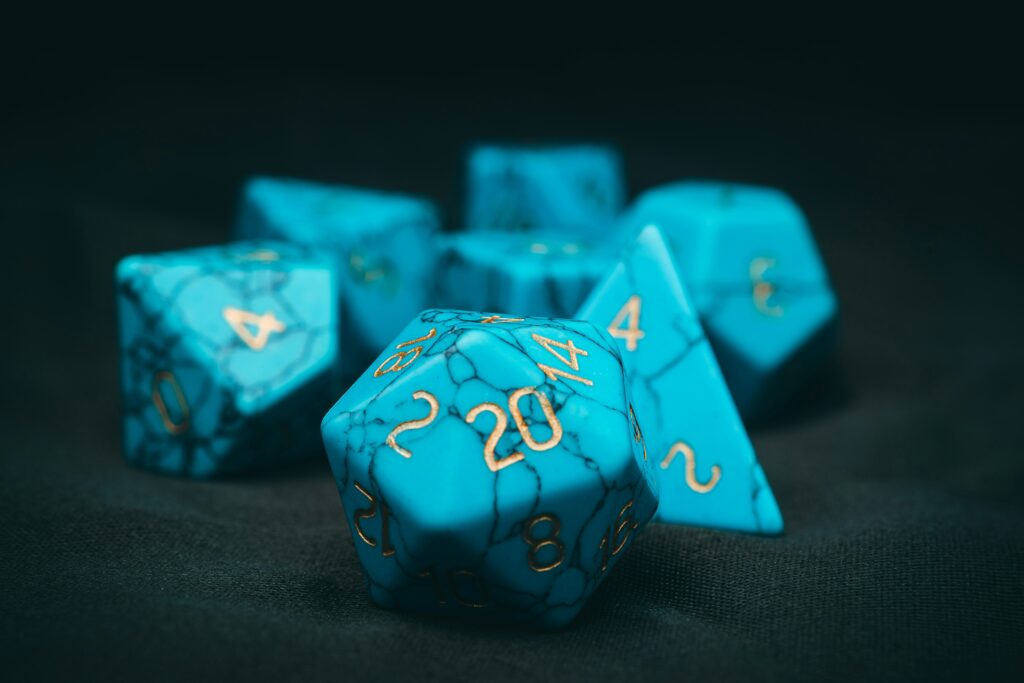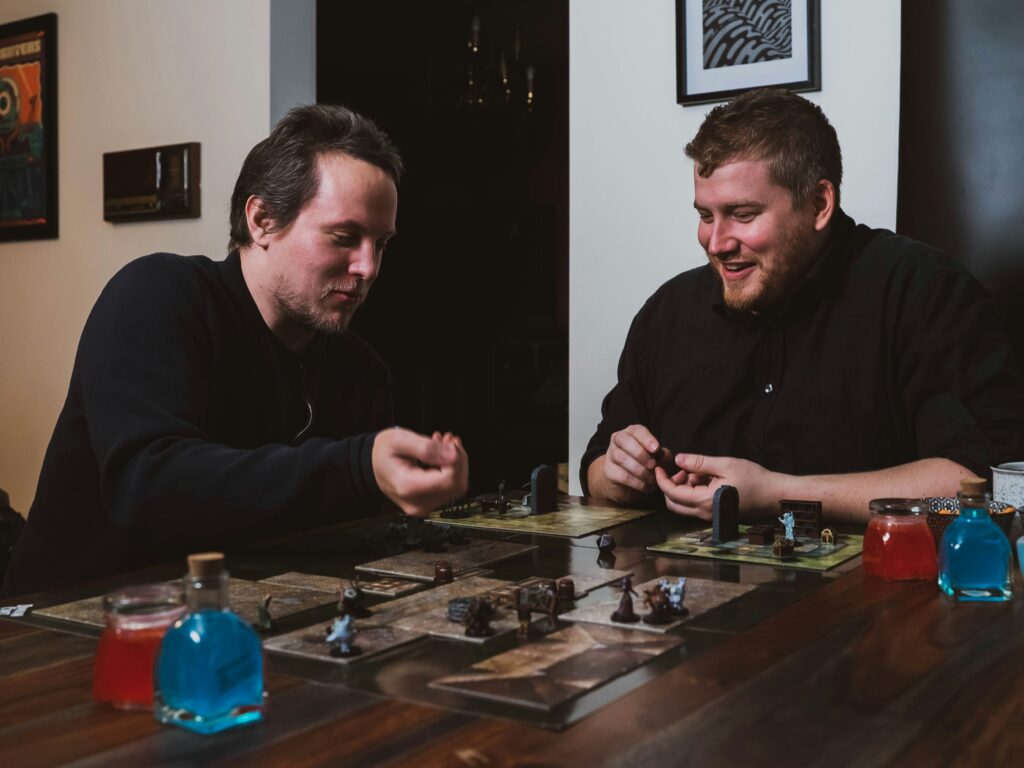
You may be wondering how delving into dungeons, fighting dragons, and rolling countless 20-sided dice relates to therapy. Certainly there are some surface metaphors of “slaying the dragon” and things like that. However, I would urge you to dive deeper into the proverbial dungeon. When you look at the way playing Dungeons & Dragons, Call of Cthulhu, and others provides specific outlets, you can see how valuable they truly can be.
The Magic of Dungeons & Dragons
First, there is the aspect of imagination. Countless peer-reviewed, scientific studies discuss the benefits of utilizing your imagination. Whether that’s done through visual imagery, songwriting, or any other creative act, your imagination is a quality unique to you. Exercising your imagination allows you to tap into your creative mind and invites your unconscious to come out and play.

Second, there is the aspect of community. Dungeons & Dragons, and similar role playing games (RPGs), come with the nightmare of scheduling, but also eventually community. A group of gamers could be anywhere from 3 to a couple dozen, though most groups sit around 5-6 people. You play this game for 4-6 hours and meet up bi-weekly or monthly to continue your group adventure. A lot of attention is paid to the dynamics of the game, but the moments in-between are more impressive. They are spent socializing, learning about each other, and possibly making plans to get together outside the game.
Where Therapy Intersects with D&D
The underlying potential that comes into play for therapy is almost hidden in the way the game is played. For those unfamiliar, in most RPGs, players create their own character with unique traits, skills, backgrounds, and even flaws. In fact, a character’s personality traits, flaws, ideals, and more are built right into the character sheet for Dungeons & Dragons. This taps into the creativity for making a well-rounded character with depth, but also allows for more. It allows those who have felt left out in their lives incorporate that similar background (or opposite) into their character.
In addition to utilizing your personal background and experience into the character building process, each player is faced with consistent dilemmas that carry their own set of consequences depending on the players’ actions and decisions. You always have an option to “kill them with kindness” or kill them with a Sword of Sharpness. Each decision can be thought out and each character must bear the brunt of their actions. You are constantly interacting with other players, as well as the world of others (non-player characters, or NPCs, and enemies) that allow you to try out basic life and communication skills. These include empathy, sympathy, persuasion, and compassion.
Many backgrounds that people select for their characters can be attributed directly to the player selecting them. A character who has an issue with a parent in the game, maybe describing themselves as the black sheep or just straight-up abandoned, may also be feeling that way in their family dynamic at home. If a character’s flaw is that they are untrusting of others at first, that may be reflective of how they are in their regular day-to-day social situations.
Adding Intentionality

Of course, there is also a chance for random character generation in which none of this would apply. That’s where intentionality comes into play. As in all things we do, adding a level of intention increases the richness and depth in how we can go through our lives. We add more meaning and a more goal-oriented mindset. If you are being intentional about your character building, you will often have the opportunity to work through things in the game that you may not otherwise have the opportunity to work through. This, in turn, also creates a more rich gaming experience for the other players, as well as deepens the connection between those people in real life.
Emotion in Action: Dungeons & Daddies
There’s a Dungeons & Dragons podcast called Dungeons & Daddies, in which the premise is four dads from Earth go through a portal into the fantasy world of Dungeons & Dragons on a quest to find their lost kids who disappeared. This is primarily a comedy podcast by a group of hilarious writers, gamers, directors, and actors. However, because they know that the best stories have depth, there are also occasional episodes where their characters have to really go through some stuff. Each of them has to face their own father at some point, making for some very emotional dialogue, as well as learn some of the flaws in their own parenting, which also makes for some highly emotional episodes. Other episodes are chock full of dad jokes, pop culture references, and other fun stuff for listeners. The reason the creators are all living very handsomely and making their third season right now is that they created a full picture; a full story. There’s no reason you, as a player, can’t do that same thing in your game.
Creating a World Worth Exploring
The final piece for this article, which may be one of many, is about the Game Master (GM). In Dungeons & Dragons, this is called the Dungeon Master (DM). The DM is responsible for creating the world and running the game. There are books the DM can use to do this, but they can also make a “homebrew” campaign. Coordinating with players in these early planning phases helps to incorporate individual players’ backgrounds into the main story. This allows for those emotionally heavy beats that allow more depth. Players can even share their goals of what they would like to work out with their characters. The DM has a great responsibility and power to make something with depth and fun. You must handle with care the potentially larger moments that will arise as the adventuring party goes through their game.
Whether it’s Dungeons & Dragons or another RPG, the opportunity to integrate yourself into the game and use it as a tool for community, empathy-building, and creativity exists. It’s up to each player how they want to play their character, overcome obstacles, and incorporate themselves into it. The results are often amazing! Other players and Game Masters will appreciate you doing your part to make a richer, deeper game than would have otherwise existed. All it takes is a little introspection and willingness to be vulnerable.

